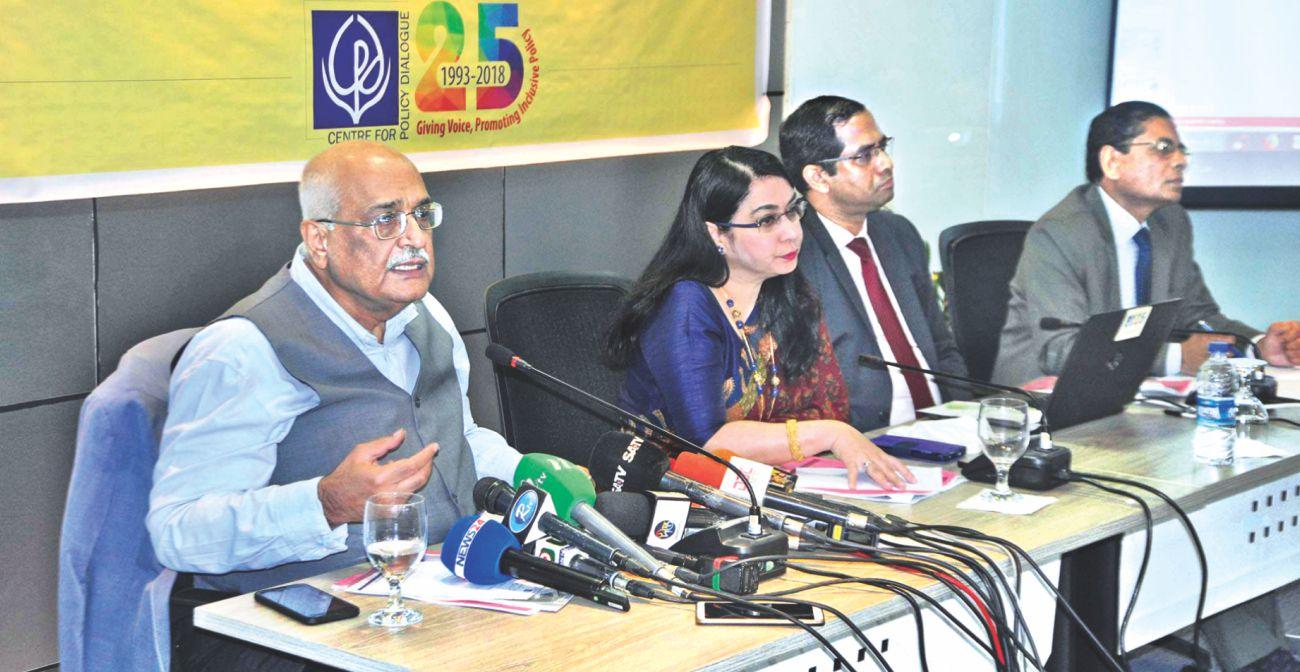Policy benefit limited to handful of sectors

State policies to facilitate entrepreneurship and entrepreneurial development is biased towards a few sectors such as readymade garments, textiles, plastic and food processing, said the Centre for Policy Dialogue (CPD) yesterday.
“Influence of different pressure groups has weakened the process of rational justification of public support,” said CPD Research Director Khondaker Golam Moazzem while unveiling a report at Brac Centre Inn.
The CPD brought out the report titled “The Least Developed Countries Report 2018: Entrepreneurship for Structural Transformation – Beyond Business as Usual” on behalf of the United Nations Conference on Trade and Development (Unctad).
The report called for countries to prioritise dynamic enterprises and enact policies to help them thrive, create jobs, innovate and transform the economy.
The report looks at the conditions for creating and growing high-impact businesses in the LDCs, a group of 47 nations including Bangladesh, and said several structural features of the economies of LDCs tend to weaken entrepreneurship and the growth of enterprises.
These include limited finances, insufficient infrastructure, lack of institutions, poverty, restrictions on women's empowerment, high registration costs and elevated political, economic and environmental risks.
The report encourages policymakers to value the benefits of entrepreneurship in an effort to add value to the LDCs' implementation of the sustainable development goals by 2030.
“Startups can play a key role in structural transformation, but in practice, only a limited proportion of startups can do so in a sustained way. New forms of enterprises such as startups should be promoted,” said Moazzem.
In light of the Unctad report, the CPD said most of the policies related to entrepreneurship promotion and development were of generic nature that target broad industrial development with limited focus.
There is a lack of policies and measures targeting vertical development of sectors, enterprises and entrepreneurs, said Moazzem on Bangladesh.
The National Motorcycle Industry Development Policy framed early this year is an exception in this regard, according to the CPD, which has been releasing the Unctad LDC reports in Bangladesh since 2006.
“Most of the fiscal incentives and financial supports provided to industries are not time-bound. Thus the measures may not ensure efficient use of the public support,” he said.
The CPD said the total number of entrepreneurs has increased by 4.1 percent per year over the last decade in Bangladesh.
Total number of self-employed and employers rose to 29.5 million in fiscal 2016-17 from 20 million in fiscal 2005-06, said Moazzem, adding that necessity-driven entrepreneurs account for 85.8 percent of the total self-employed entrepreneurship.
The rest is opportunity-driven entrepreneurs, he said citing Labour Force Surveys.
He said opportunity-driven entrepreneurship was rising slowly and this group of entrepreneurs was more likely to take higher risks.
“The opportunity driven entrepreneurs tend to stay in the business for longer periods with better revenue and profit margin. That is why, they were able to make changes in their products, production processes, marketing and pricing,” he said.
However, insufficient capital acts as a major constraint to entrepreneurship, he added.
The report suggested adoption of sectoral policies targeting key and potential sectors, highlighting the value chain of respective industries to facilitate entrepreneurship development.
It also stressed ensuring fair competition by proper implementation of rules and regulations including competition policy, financial reporting of companies and company laws.
It recommended assessment of fiscal and financial incentives provided to different industries.
“A life cycle approach needs to be taken into account,” Moazzem said.
Life cycle approach and development of new entrepreneurs are very important, said Distinguished Fellow at the CPD Prof Mustafizur Rahman.
“We have to switch to entrepreneurial state from developmental state. The role of state is very important,” he said citing various policy support and incentives provided to the RMG industry.
